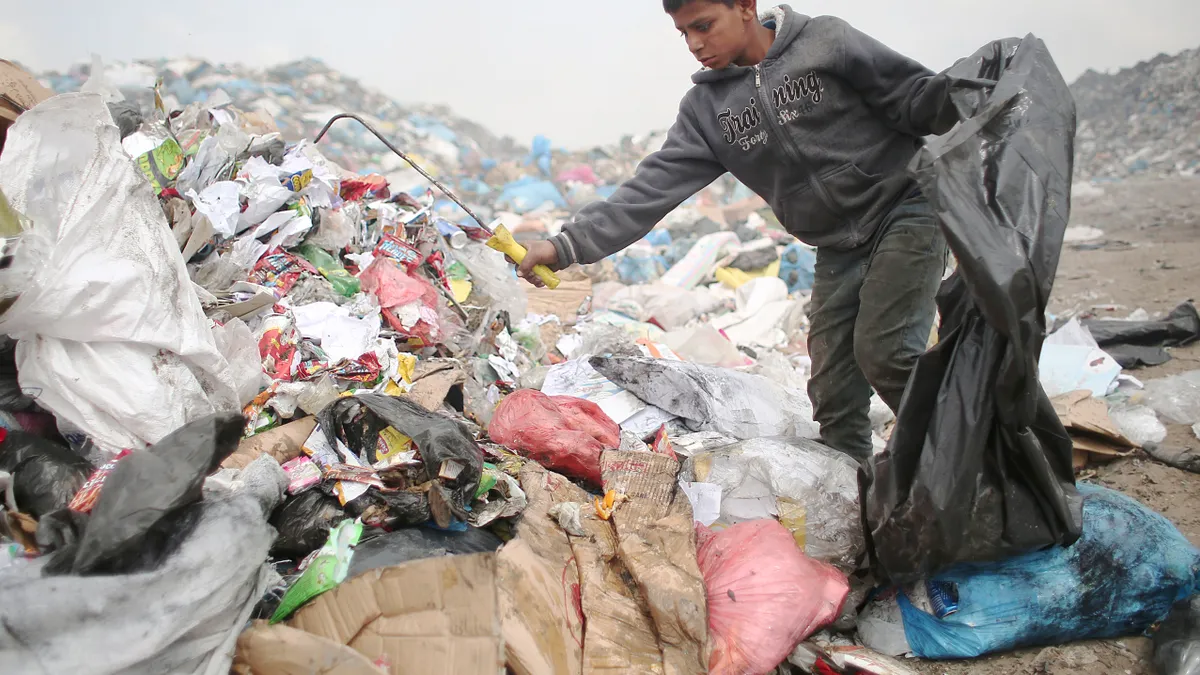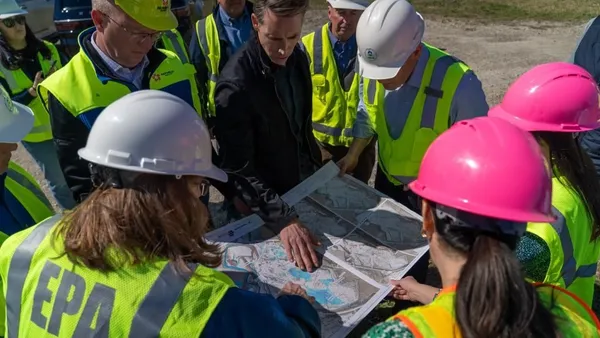Dive Brief:
- The International Solid Waste Association (ISWA) is focusing on Brazil at the start of its campaign to close the world's 50 largest dumpsites — and it has started to see results. The Estrutural dump site in Brasilia, the nation's capital, has become a top priority in part due to inspiration from a 2016 ISWA report.
- Estrutural will now be closed within 18 months and the regional government will replace it with a sanitary landfill.
- ISWA has teamed up with Brazilian trade association ABRELPE to pursue the closure of five more dump sites in the country. ABRELPE's president, Carlos Silva Filho, is also the vice president of ISWA.
Dive Insight:
Brazil currently sends about 30 millions tons of waste per year to open dumpsites and is known to have some of the worst in the world. Since it opened more than 50 years ago, Estrutural has become one of the largest sites in Latin America. As seen during the 2016 Olympics in Rio, waste management is an ongoing issue for many Brazilian cities and regulating these open dumpsites is seen as one of the main steps to improving that situation.
Closing the sites is complicated, especially because many people work and sometimes live inside of them. After the Jardim Gramacho site was closed outside of Rio in 2012 it affected the livelihoods of many local residents despite the establishment of a government-managed compensation fund and a new recycling facility. Some of these "catadores" were given an opportunity to collect waste within sports facilities during the Olympics, which could be a model for more formal opportunities in the future. ISWA also manages a scholarship program which has raised enough funds for 40 children to attend school for two years rather than working with their families to make money from sorting waste.
From an environmental standpoint, these open dumpsites are seen as a high priority because they manage approximately 40% of the world's waste, contribute to marine litter and make up an increasingly larger share of greenhouse gas emissions. Modernizing them will help improve recycling opportunities and potentially bring more money to local governments, but it will also have a direct effect on many people's lives. According to a recent ISWA report, more than 750 deaths occurred at dumpsites around the world between December 2015 and June 2016















